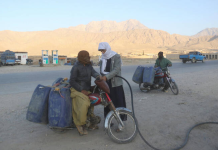DNA
ISLAMABAD – The All Pakistan Business Forum (APBF) has called for solid economic plan, terming the new budget of 2024-25 as the uncertain one in view of deteriorating energy crises following the tough conditionality of the International Monetary Fund.
The APBF condemns the imposition of more taxes in the budget, questioning how inflation can be maintained at 11 percent when more than 45 percent of revenue targets will be achieved from tax and non-tax measures and the elimination of tax exemptions, said the APBF President Syed Maaz Mahmood.
Syed Maaz Mahmood said that the APBF had taken all trade and industry associations on board for preparation of proposals for the upcoming budget. He said that efforts were made to give government a set of suggestions for upcoming budget to make it business-friendly.
The APBF chairman Ibrahim Qureshi said that the FBR’s reforms initiatives are not bearing fruit, as the revenue collecting agency could increase the number of sales tax return filers mainly due to rise in the type of those filers, who haven’t paid any tax, implying that bad governance and weak tax management of the tax department still persist.
Ibrahim Qureshi emphasized the evident expectations drawn from the budget 2024-25. It highlighted the same measures which have been in discussion for the success of the IMF program, he added. First of all, she indicated the prosperous increase in the revenue which was targeted at Rs9.4 trillion in the previous year, however, it has jumped to Rs12.97 trillion which is nearly Rs13 trillion for the current fiscal year. This is a significant jump and is an over-ambitious target for the FBR to collect revenue, he said.
Syed Maaz Mahmood urged the authorities to introduce new tax incentives and extend the period of existing ones for attracting new foreign direct investments in line with the potential of the country. With a view to wipe out corruption there needs to develop local software and Apps with simplified system in Urdu so that interaction of human resource should be reduced, he suggested. He suggested that taxes should be charged one time by any provincial or federal government, as provinces levy same kind of tax which the federal government has already imposed, escalating the cost of production and discouraging the registered manufacturers.
The APBF president said that Pakistan’s inflation rate is the highest among all the South Asian nations. He said that the world is moving towards alternative sources of electricity generation but the Pakistan government’s policies are contrary to it.
He said that Pakistan is the most frequent customer of the IMF and the governments often depend on borrowing from the lending arm and accepted stringent conditions, despite the fact that this institution is merciless money lender, which has always forced Pakistan to adopt bad policies like new taxes in the budget, rupee depreciation and massive increases in the electricity and gas tariffs.
He said that even though Pakistan’s economic crisis is a recurring factor in the country’s political unrest, it has a history of ignoring the nation’s true issues, which include poor governance, a broken judicial system, outdated laws, complicated tax system, lack of transparency, duplication in the government system, ineffective bureaucracy, improper use of our human, natural and water resources, lack of efficient local government, inadequate/unreliable data for country’s planning, and the consistent flaws in policies in execution by the government departments.

















